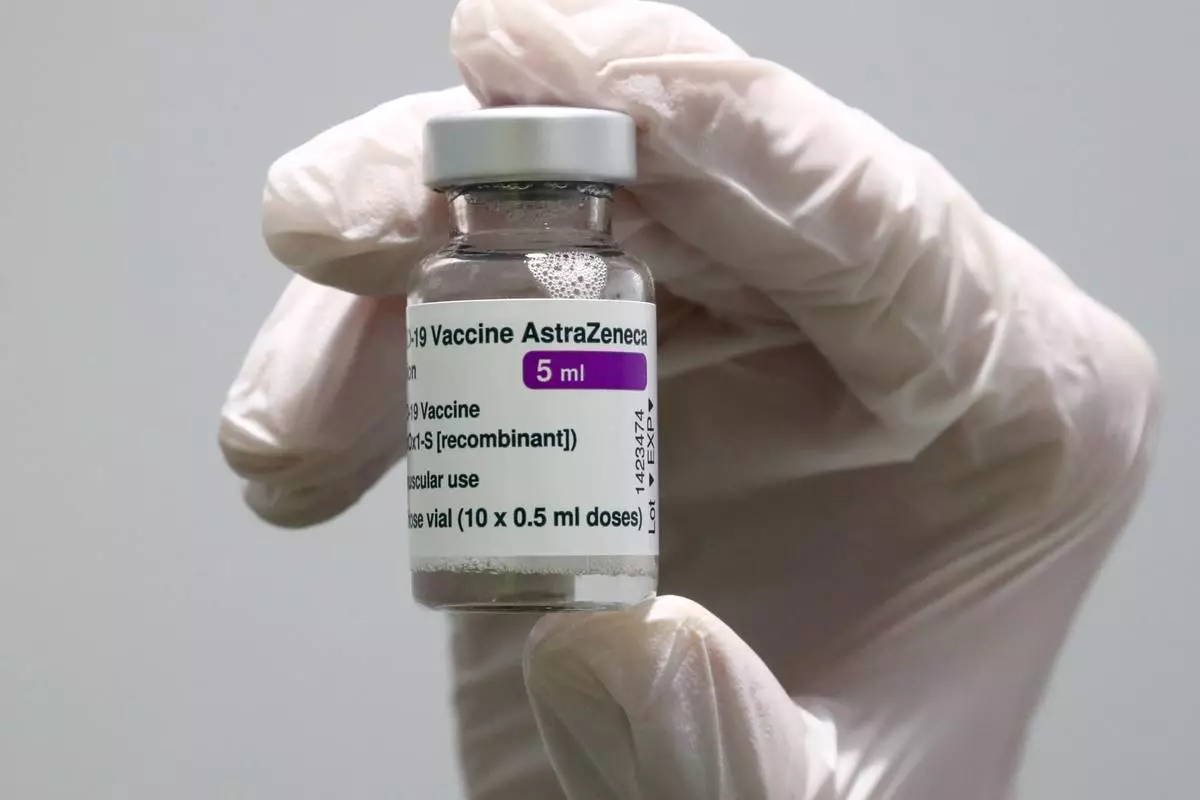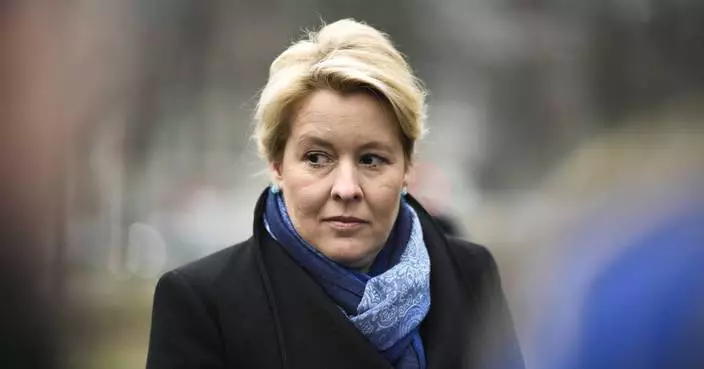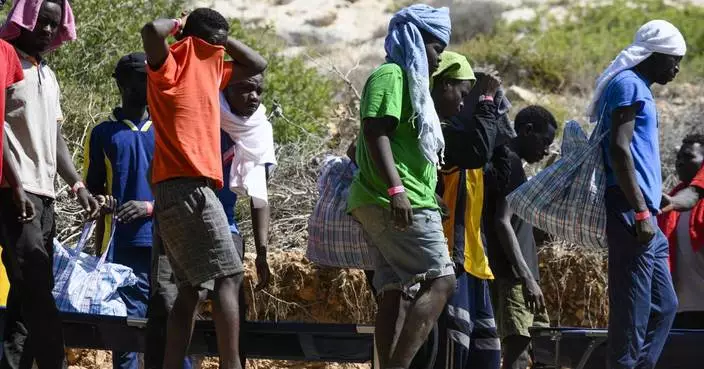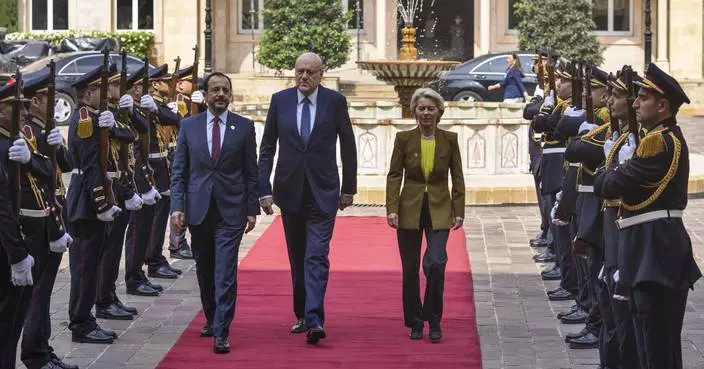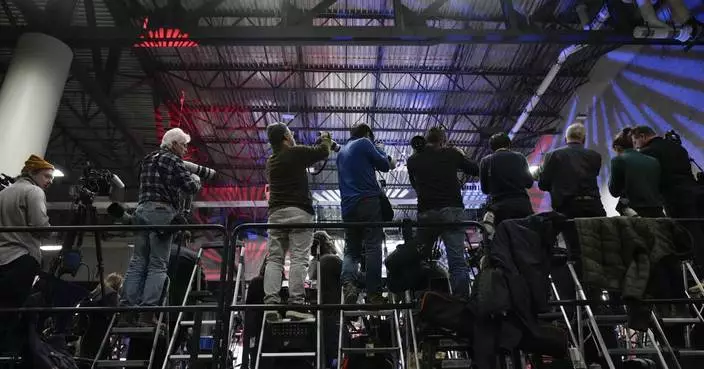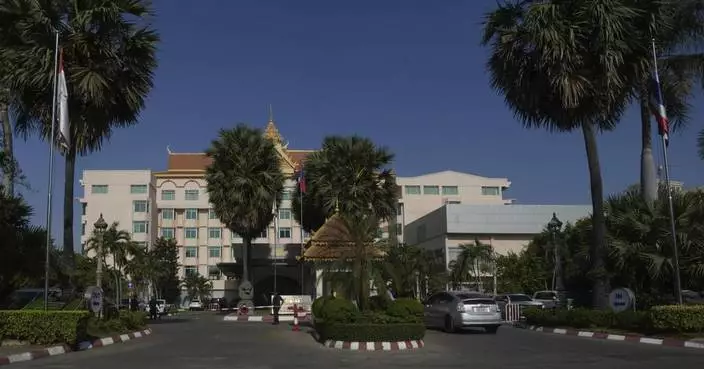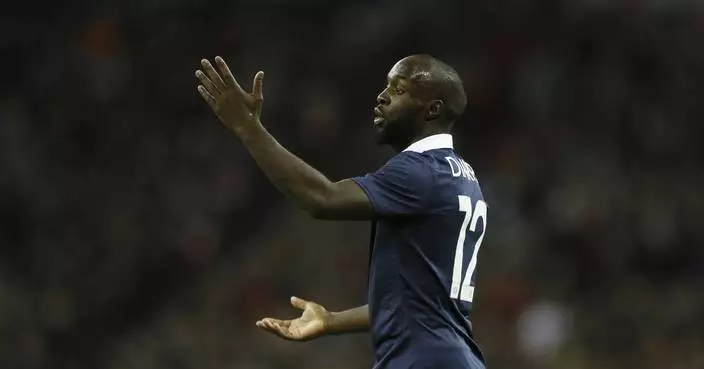French President Emmanuel Macron and Russian President Vladimir Putin are meeting in southern France to discuss the world's major crises, including Ukraine, Iran and Syria, and try to improve Moscow's relations with the European Union.
Macron has invited Putin on Monday afternoon to his summer residence, the Fort de Bregancon on the French Riviera, for a meeting followed by dinner, just a few days before opening a meeting of the Group of Seven nations in the French city of Biarritz with U.S. President Donald Trump and other leaders.
France holds the 2019 presidency of the G-7, which also includes Britain, Canada, Germany, Italy and Japan. Russia was excluded from the group after it annexed Crimea in 2014.
Macron intends to share the outcomes from his meeting with Putin with other world leaders in Biarritz Aug. 24-26.
A top diplomatic official at the French presidency said on customary condition of anonymity that the meeting aims to find "common ground" that would allow world powers to "converge on the essential."
France seeks to play the role of mediator in Russia's conflict with Ukraine, and Macron has stressed the importance of keeping dialogue open with Moscow. French companies have also been pushing to lift EU sanctions resulting from Russia's actions in Ukraine.
The election of Ukraine's new president, Volodymyr Zelenskiy, provides opportunity to relaunch negotiations, the French diplomat said.
Zelenskiy has pushed for a quick four-way meeting involving himself, Putin, Macron and German Chancellor Angela Merkel to discuss ways to settle the conflict in eastern Ukraine that has killed more than 13,000 people since 2014.
The Kremlin has kept the door open for such a meeting, but urged Ukraine to first honor provisions of a 2015 Minsk agreement that was brokered by France and Germany. The deal has helped reduce fighting, but clashes have continued and political settlement has stalled.
Iran will also be high on the agenda in the context of heightened tensions between the country and the United States. France wants Russia to use its close ties with Tehran to push for de-escalation.
Macron has taken a lead role in trying to save the 2015 nuclear accord, which has been unraveling since Trump pulled the U.S. out of the agreement. Russia, along with Britain, Germany and China, remains a part of the accord.
France also hopes to convince Putin to use his influence in Syria to stop a government military offensive in the region of Idlib, a rebel-controlled area in the northwest of the country. Moscow backs Syrian President Bashar al-Assad's government, but Paris is pushing for a truce that would prevent more civilian deaths and flows of refugees.
The meeting in Bregancon will offer Putin a chance to press the case for normalizing ties with the EU, which remain tense after Russia's annexation of Crimea and support for separatist insurgents in eastern Ukraine.
In a landmark move, the Parliamentary Assembly of the Council of Europe restored the credentials of Russia's delegation in June, five years after it was stripped of voting rights following Crimea's annexation.
Putin's foreign affairs adviser, Yuri Ushakov, who briefed reporters before Putin's trip to France, said that Macron played a role in the body's move.
"We are grateful to France for its constructive role," Ushakov said.
He added that at the meeting with Macron, Putin would raise the issue of restoring a full-fledged dialogue between Russia and the EU.
The French diplomat acknowledged the task won't be easy given the many diverging interests between the two countries.
Earlier this month, France strongly condemned Russia's crackdown on anti-government protesters in Moscow, denouncing the arrests of more than 2,000 people and the "clearly excessive use of force."
Vladimir Isachenkov in Moscow contributed to this story



